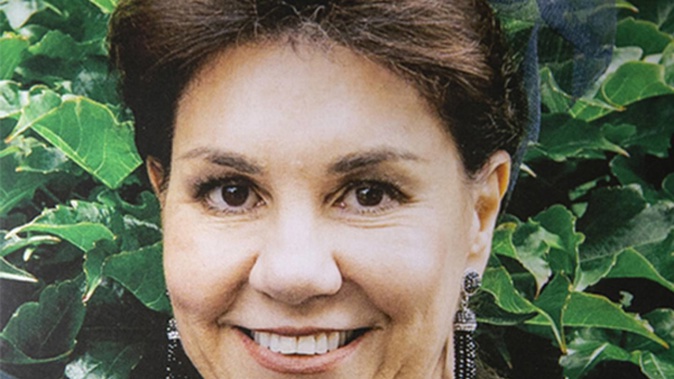
On a Monday night in March last year, Pauline Hanna opened her email and began composing a message to colleagues.
New Zealand was in the grip of the first stage of the coronavirus pandemic. The number of infections was rising rapidly, the whole country was suddenly in lockdown, and hospitals were bracing for a surge in patients. But in Auckland, health authorities had just had a breakthrough in their preparations.
Tapping out the email, Hanna, an executive responsible for the Covid-19 response at procurement company Healthsource, told her colleagues that they'd just received approval for a $20 million consignment of protective equipment (PPE) from a Chinese supplier. Within days, a flight would arrive bringing desperately needed supplies for frontline medical staff at the northern hospitals.
"Please help us dispel the myth that there is not enough PPE," Hanna wrote, according to a copy of the email obtained by the Herald.
"Awesome news Pauline," another executive replied. "Well done."
"Thank you I am one v. happy person!" Hanna said.
The order was a relief for an organisation scrambling to respond to an unprecedented global health emergency, but also a moment of personal satisfaction for a woman who'd spent her career in health administration and prided herself on being a competent leader who thrived at difficult times.
Hanna's triumph would be short-lived, however. The PPE took months to arrive and, when it did, the masks and gowns turned out to be unfit for purpose, according to several people familiar with the order. And Hanna herself would come under intense pressure personally as the pandemic unfolded, those sources said.
Hanna's stepson, Ben Polkinghorne, wrote in a Facebook post last week that Hanna had been "horrendously stressed" at work, and that it had taken a heavy toll on her mental health. A week later, she was dead.
It is now two months since Hanna was found deceased at her home in Remuera, which she shared with husband Philip Polkinghorne, an accomplished eye surgeon. Her death has drawn national attention but remains a mystery. Police are investigating but have provided very little information about the case, saying only that they are treating Hanna's death as unexplained.
Although the circumstances of Hanna's death remain unknown, multiple interviews with friends and former colleagues who knew her have provided new details about Hanna's life, including her prominent role on the frontline of New Zealand's response to the Covid-19 pandemic.

It is now two months since Pauline Hanna was found deceased at her home in Remuera. (Photo / Supplied)
In the days after Hanna's death, tributes from family, friends and colleagues emphasised the importance of her professional life in her perception of herself. They portrayed her as elegant, driven and unflappable.
Hanna was "remarkable", her husband Philip told the Herald in his only media interview since his wife died. And at Hanna's funeral, her younger sister, Tracey, said: "Can you imagine what it was like growing up in the shadow of such an impressive big sister?"
"Pauline was larger than life," Tracey said. "She had tenacity and determination, all that good stuff she deeply cared about. Not to disappoint was, I believe, her driving force."
All of that was true, the sources who spoke to the Herald said, but the reality was complicated — both at work and in her personal life.
Pauline Kay Hanna was born on February 21, 1958. She grew up on a farm in Havelock North with her siblings, Bruce and Tracey. She had a late start to her academic career after a seven-year overseas experience and in later years did a Master of Business Administration at the University of Otago.
Over the past two decades, Hanna worked in various roles in the public health system. It was in her role as an administrator at Auckland Hospital's ophthalmology department in the 1990s that she met Philip. They married at Hanna's family home in Hastings; it was her first marriage and his second.
In recent years, Hanna held senior administrative positions at the Counties Manukau District Health Board. Dressed in Adrienne Winkelmann power suits and always immaculately presented, Hanna exuded a hard-edged elegance. She never had a hair out of place. It made a striking impression on those she worked with.
"She spent a lot of time and money on her hair," said one former colleague. "She dressed well and drove a nice car. When she walked into a room, you'd think she was the CEO — that's how she acted."
According to friends, Hanna took appearances seriously. She had a collection of hairpieces to disguise her thinning hair. She wore makeup even at the beach. Her nails were always painted, her skin flawless. "She did it for herself," one said. "She looked good because it made her feel good. She liked to be flattered."
Hanna worked hard, including at weekends. Friends communicated with her by email because she was "too busy" to talk. Her professional success gave her a sense of self-worth, one friend said.
But the last months of Hanna's working life were strained.
Before the pandemic, Hanna had applied unsuccessfully for an important position at Counties Manukau, according to one former colleague.
"Pauline was gutted," the former colleague said.
"She said, 'Well if your face doesn't fit,' and then she shrugged her shoulders and got on with it. That was Pauline. She was competent and efficient and clear about what she wanted."
When the pandemic started, Hanna was seconded from Counties Manukau to Healthsource, the health services company that provides procurement, finance, and other support to the northern hospitals. One of Healthsource's main roles during the outbreak was sourcing PPE for frontline medical staff. Hanna was put in charge of Covid logistics.
It was then, in late March, that she helped secure the $20 million PPE order for the northern hospitals, from a Chinese supplier.

In the days after her death, tributes from family, friends and colleagues portrayed Pauline Hanna as elegant, driven, and unflappable. (Photo / File)
Senior executives at the Auckland DHB, including its chairman Pat Snedden and chief executive, Ailsa Claire, signed off on the deal on the night of March 30, Hanna told colleagues in the email obtained by the Herald. "The aircraft leaves China (not sure which port) on Friday and lands Friday."
However, there were long delays, according to several former colleagues. "It took four to six months to arrive," one said. "They ordered millions of dollars of PPE from China sight unseen. And it was real panic stations. When it did arrive, the masks were … unsuitable and the gowns were not waterproof."
Hanna appeared to be under enormous stress at this time and some of her relationships with colleagues were fraught, former colleagues said. She could be "overbearing", one said, while another described her as "out of her depth".
"It was Pauline's way or no way," one of the sources said.
"If I pushed her, she would become irate and send me abrupt emails written in bold capitals that were shouty, like: 'WHERE IS THIS?'" the source added.
Before her death this year, Hanna was working on the rollout of Covid vaccines. Ben Polkinghorne, Hanna's stepson, said in his Facebook post last week she had reluctantly taken the role and found it "incredibly difficult and lonely".
"She was working 100-hour weeks, horrendously stressed and it just wasn't enough," he said, adding that Hanna had not been given mental health support to help her cope with the pressure of the role.
In his interview with the Herald, days after Hanna's death, Philip also said that his wife struck him as overworked before she died. He wasn't sure what her role was but said "she could fix any problem" and was "extremely highly regarded by her colleagues".
In a statement, Counties Manukau said it would not comment on the PPE order or answer questions about Hanna's employment.
"Matters between employer and employee are confidential and need to remain that way," a spokesperson for the DHB said. "Pauline was a highly respected and much-loved staff member, whose passing has left a large hold in the fabric of our whānau."
In the last months of her life, Hanna's personal life also appears to have been unravelling.
To friends and colleagues, Hanna seemed to have the perfect marriage. The couple loved reading books and listening to classical music together, friends say, and they were always the first to get up on the dance floor. They wore colour-co-ordinated clothes. Philip, a small man, dressed flamboyantly and favoured bow ties that reminded one friend of Polkinghorne's hero, Winston Churchill.

Ben Polkinghorne with Pauline Hanna, his stepmother, on Ben's wedding day. (Photo / Supplied)
At home, Hanna was a bon vivant, the "glue" of the family, hosting lavish dinner parties for friends and cooking Sunday roasts for her three stepsons, John, Ben and Taine, Polkinghorne's children from his first marriage, who she referred to fondly as her "ready-mades".
"Pauline was always involved with the children's lives and was so happy to later have a grandson," Polkinghorne told the Herald. "She always considered them her children."
In that interview, Polkinghorne said there had been no problems in their marriage before Hanna's death: "Our relationship wasn't fine. It wasn't fine at all. It was perfect."
But there, too, the reality may have been more complicated than it appeared from the outside.
Like many women whose lives are outwardly perfect, Hanna's marriage seems to have had secrets.
As the Herald reported last month, Hanna had contacted a private investigator prior to her death. Police found a note at the Remuera house that said "private investigator" and the name "James" on it, and contacted private eyes to find out if they had been in touch with Hanna. It is not known why Hanna would have required the services of a private investigator.
It has emerged that Polkinghorne was a frequent visitor to a masseuse, who is based on Auckland's North Shore. His Mercedes-Benz, which has a distinctive personalised number plate, was often seen outside the masseuse's property, a source told the Herald.
Several of Hanna's friends disputed Polkinghorne's description of their marriage as perfect. "I don't think things were great at home," one said. "She'd always be at work in the weekends … She would make comments like, 'Philip wouldn't tolerate me not looking my best'. She said this openly and didn't hide it."
This friend said it struck her as strange that Hanna's death notice referred to Philip only as Hanna's "eternal friend". "Why wasn't it 'Beloved wife of'?" the friend said.

Pauline Hanna was "remarkable", her husband Philip Polkinghorne told the Herald in his only media interview since his wife died. (Photo / File)
In his Facebook post, Ben Polkinghorne seemed to suggest that Hanna may have taken her own life, because she was struggling with her mental health. Hanna's friends don't believe that.
"You know, it's eight weeks now and the pain is just awful," one said.
"There is no way she would have taken her own life, and if she did, she would have left notes, one to Philip and one each for the boys. What I want to know is, what the hell happened?"
Take your Radio, Podcasts and Music with you









